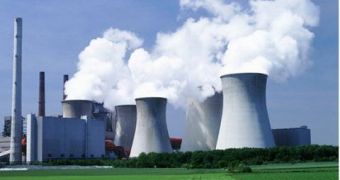Most people are probably unaware of this, but nuclear plants typically require that massive amounts of water go into cooling down their reactors.
This is because nuclear plants can only function properly within very precise temperature limits, which are very well documented and listed as legal standards.
Therefore, if something goes wrong with the cooling process, the facility is considered to no longer be safe to operate. Usually, this leads to engineers' having to shut down all activities.
As well as this, since the water usually used to cool down nuclear reactors more often than not is released back into the environment, any increases in its temperature are bound to negatively impact on natural ecosystems.
Seeing how the past few weeks brought about record temperatures, especially in America, it is no surprise that US citizens are now questioning how national nuclear plants will respond to these extreme weather manifestations.
To be more specific: provided that said heat waves resulted in the country's water resources getting warmer than usual, can nuclear plants still be cooled down as efficiently as before, while still keeping an eye on environmental protection? Climate Central informs us that Alysin Kenward, who in 2011 reported on how a massive heat wave in Alabama impacted on the nuclear reactors at the Browns Ferry plant, explained how, “With river water so warm, the nuclear plant couldn't draw in as much water as usual to cool the facility's three reactors, or else the water it pumped back into the river could be hot enough to harm the local ecosystems.”
Although engineers claim that there are no risks for nuclear meltdowns or radioactive leaks, the question remains whether or not climate change and global warming may eventually severely impair our global energy production and threaten public health in ways nobody could have possibly foreseen.

 14 DAY TRIAL //
14 DAY TRIAL //